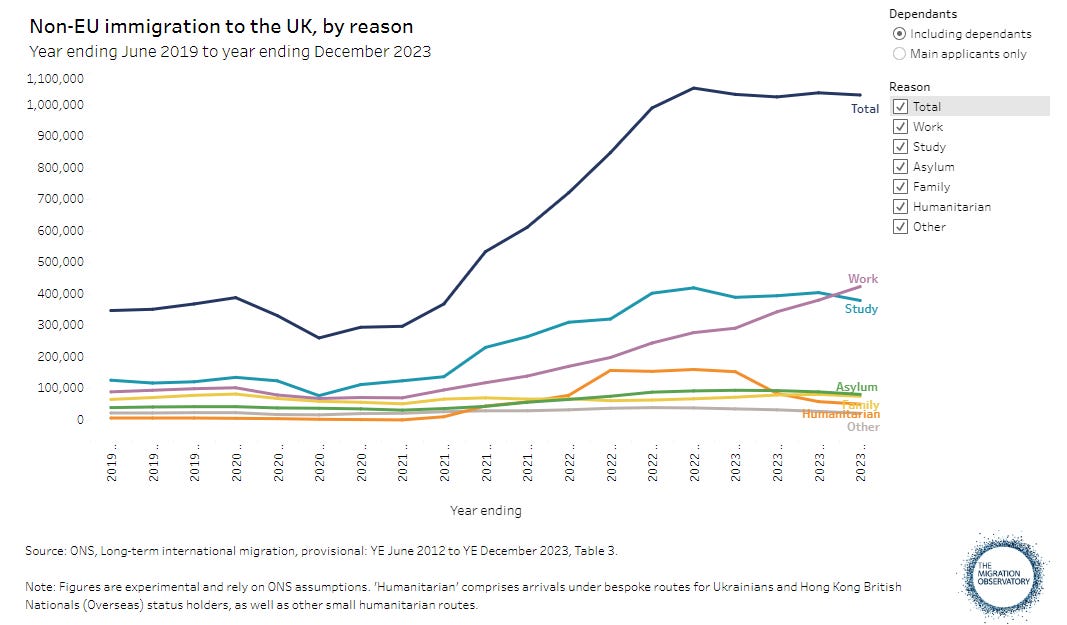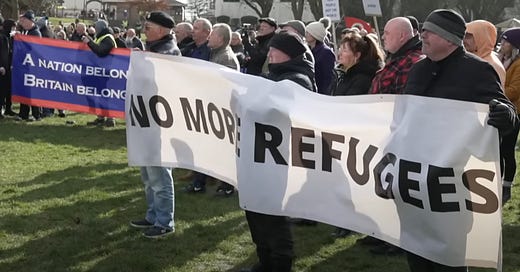Anti-Migration Unrest Rocks United Kingdom
Musk describes UK government as 'Woke Stasi' after response to protests

The United Kingdom has witnessed a significant escalation in social tensions after the murder of three young white girls sparked anti-immigration protests that left city streets covered in debris, police injured, and a nation deeply divided.
After the stabbings at a Taylor Swift-themed dance workshop on July 29 in Southport, a seaside town north of Liverpool, protesters clashed with police in several cities and towns. Authorities arrested more than 400 during the unrest, which was ignited by misinformation that the assailant was an illegal immigrant, not British-born.
Prime Minister Keir Starmer has vowed to crack down on the rioters and deploy additional police and security personnel. The government has warned that they will hold accountable anyone who reposts social media content that is deemed incendiary.
While the government has focused on halting the protests, there has been little public debate about how to address the impact of migration on the culture and the economy. The government has offered few solutions on how to promote social cohesion amid hostility between some British citizens and some in the Muslim community.
Matt Goodwin, a British professor and commentator, described the ruling elite as “bewildered and confused” in their response to the protests. By promoting a “comforting narrative” that pins the unrest on “far-right thuggery” or even “terrorism,” there’s “no need to listen to the protestors, search for the root cause, or treat their concerns as valid.”
Across Europe, citizens are turning to leaders who pledge to curb the flow of migrants. Populist Dutch leader Geert Wilders won the general election in November on his anti-immigration stance. Italy’s Prime Minister Giorgia Meloni came to power promising to curb immigration.
Underlying Issue
British protestors have argued that the government has ignored the fact that migration may be the underlying issue fueling the unrest, according to analysts. About 67% of the British public think immigration has “a great deal” or “fair amount” of responsibility” for the protests, according to a YouGov survey from August 5-6.
Protestors have expressed concerns that their culture is being replaced and have vocalized frustration with crime they associate with illegal immigrants, who are 70% adult males aged 18 and over, according to Migration Watch UK, a British think-tank arguing for lower immigration.
They have accused authorities of two-tiered policing, pointing to the government’s cracking down on anti-illegal immigration protests, while saying authorities have ignored the outbreak of violence from the Muslim minority, which represents about 6.7% of the British population.
The Labour government has refused “to concede that there is anything other than what they call far-right violence going on,” British journalist and author, Douglas Murray, said on August 7 in an interview on SkyNews.com.au. “They claim that there isn't a two-tier policing system in the UK, which everybody with their own eyes can see is not the case.”
‘Unusually High’
The Migration Observatory at Oxford University described net immigration as “unusually high” in 2023 at 685,000, driven by an increase in non-EU citizens. Indian nationals were the largest nationality, accounting for 21% of overall immigration, followed by Nigerian at 12%.

Concerns about the large number of illegal migrants crossing the English Channel have fueled the protests. The public is frustrated with their taxes going to house and feed migrants when they see citizens, including former soldiers, struggling to make ends meet.
While illegal immigration across the channel declined to 29,437 in 2023, from 45,774 in 2022, the inflow remains too high for many protestors.

In response to the anti-immigration protests, thousands of counter-protesters have rallied in cities and towns across England. Gatherings in locations where anti-immigration protests had been expected were largely peaceful.
Distrust
The protests have occurred in an environment of mistrust for the government and the police. Only bout 20% of the British public say they trust their government and less than half (48.5%) are satisfied with the police, according to the UK Measures of National Well-being Dashboard in August.
The outburst of unrest regarding immigration has been also conflated by economic pessimism, weak economic growth, and stagnant wage growth. In July 2024, 45% of adults reported their cost of living had increased over the last month, and 31% of adults who pay energy bills reported finding it difficult to afford.
A survey published on June 20 by the Pew Research Center showed that 78% of those polled said the economy was in poor shape. UK consumer confidence was negative 13 in July 2024, the worst it has been since 2021, according to the UK Measures of National Well-being Dashboard in August.
‘The Woke Stasi’
The government’s crackdown has also raised questions about its commitment to free speech.
“Whether you are in this country committing crimes on the streets or committing crime further afield online, we will come after you,” British Metropolitan Police Commissioner Sir Mark Rowley, said on August 9. “Being a keyboard warrior does not make you safe from the law.”
Elon Musk posted on X “Support freedom of speech in the UK!” after Rowley’s comments. A day earlier, the owner of X described the British government’s crackdown on online free speech as the “Woke Stasi,” a reference to the former secret police agency of the German Democratic Republic.
Joe Rogan, an influential American podcaster, described the British government’s response to the protests as “terrible government overreach” and “worse than Russia.”
“The fact that they're comfortable with finding people who've said something that they disagree with and putting them in a f—king cage in England in 2024 is really wild,” Rogan said. “Especially, they’re saying you can get arrested for retweeting something.”



